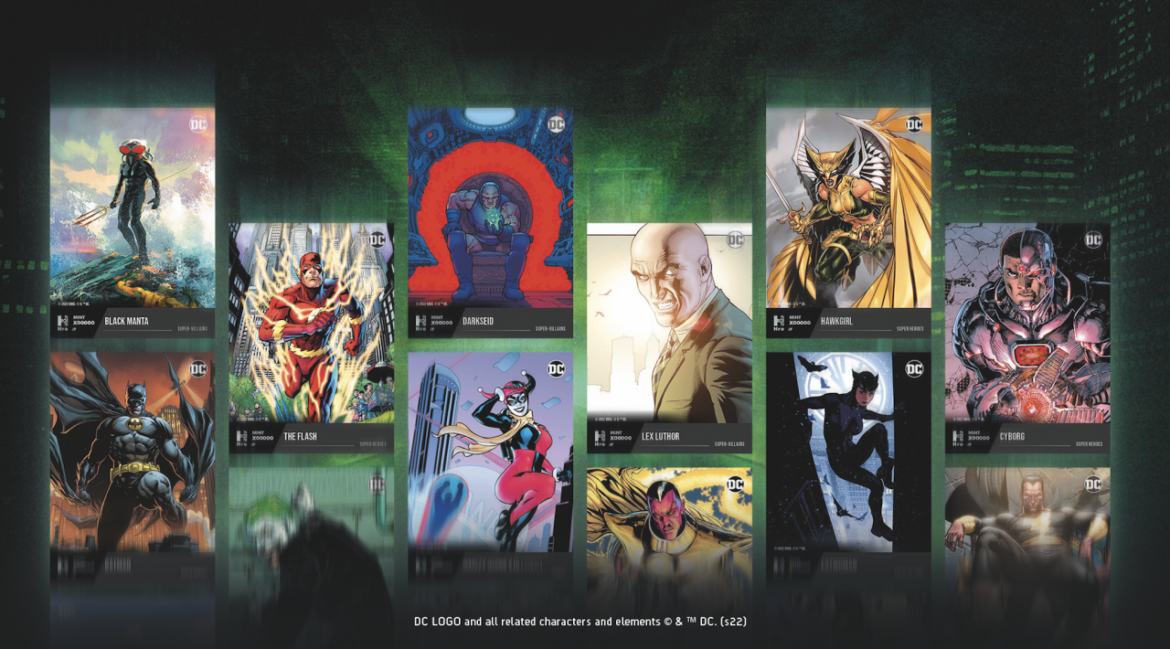Web3 is the new frontier for marketing, and it’s continuously evolving. To keep you up to speed, here’s what you need to know from this past week.
President Biden ushers in a new era for cryptocurrency
On Wednesday, President Biden signed an executive order mandating his administration to begin investigating how cryptocurrency could potentially benefit or harm U.S. national security and global financial competitiveness. The historic legislation arrives at a time when the world is racing to come to grips with the transformational effects of cryptocurrency, which doesn’t appear to be going anywhere anytime soon.
The new legislation, broadly speaking, calls on federal agencies to crack down on criminal activity taking place in the crypto space, mitigate threats posed to cybersecurity, and take active steps to ensure that the U.S. will become a technological leader in the growing digital asset marketplace. The signing of the executive order caused crypto stocks and digital assets (like Bitcoin) to surge.
LimeWire is back from the dead — as a NFT marketplace
If you grew up in the early 2000s, there’s a very good chance that you downloaded pirated music or videos from LimeWire — probably riddling your parents’ computer with malware in the process. Ah, those were good times, but they didn’t last: the platform was shut down in 2010 and fined more than $100 million for copyright infringement. Since then, LimeWire has been a potent source of nostalgia for countless music-loving millennials. Now, two Austrian entrepreneur brothers have set out to cash in on that nostalgia, as well as on the growing virtual marketplace, by reviving LimeWire as a platform where users can buy music-related non-fungible tokens (NFTs). The brothers, Paul and Julian Zehetmayr, have reportedly already secured deals with “around 10 ‘really big mainstream’ artists,” per Bloomberg. While its previous incarnation was a notorious safe haven for pirated music — and therefore not a financial boon for artists — the new LimeWire is positioning itself as an ally for artists who are looking to establish deeper connections with their fans (and earn a little extra cash) via NFTs.
Tech expert warns: ban the metaverse for children under 10
When it comes to protecting children, says Scottish tech expert Mark Evans, the costs allowing kids to wander the Metaverse outweigh the benefits. “We need universal governance that puts checks and balances in place to avoid our children and young people being exploited,” Evans said in a statement. “I would even go as far as banning the metaverse for anyone under 10 years old.”
Roblox provides an illustrative example: launched as a children’s game, the platform has become a major zone of development in the metaverse. It’s also become the site of some virtual sex parties. This is one of the examples cited by Evans to support his argument for age-specific restrictions. “Some things are not what they seem, and I believe the same is true of the Metaverse,” Evans says. “It is being billed as a safe space, a Nirvana-like place that is free of real-world prejudice, because gender, race or disability don’t exist. But if the metaverse is a place where users can be anyone or anything, isn’t that also true for all the fraudsters, sex criminals and imposters waiting to take advantage of our young people?”
In order to protect children and build a safer, more law-abiding metaverse, Evans suggests imposing mandatory opt-in and privacy measures, ID checks, as well as the threats of “heavy fines and imprisonment.” Such measures seem unlikely to materialize, at least in the short-term, given the logistical complexities of policing the decentralized and still-nebulous world of the metaverse. But Evans’ concerns may be echoed by a growing chorus of his peers throughout the tech world if cases of abuse in the metaverse continue to come to light — as they probably will.
Google shows interest in the metaverse is declining, already
Google Trends data suggests that it might be. Google Trends, which tracks user behavior on the search engine, shows that interest in NFTs and the metaverse has sharply declined during the first few months of 2022. Searches for “NFT,” despite reaching a peak popularity in mid-January, have been plummeting ever since. Searches for “metaverse,” which have been generally much less common than those for “NFT,” have followed a similar downward course during the first few months of the year. This is a bit of a surprise, considering how deeply entrenched both terms have become in the zeitgeist over the past year — especially after the most recent Super Bowl, which featured multiple prominent commercial mentions of the metaverse.
Warner Bros celebrates release of The Batman with NFT launch
Warner Brothers announced Hro, a new collection of NFT trading cards. The announcement was timed in sync with the release of The Batman, which hit theaters last week. As “the first DC-based Hybrid NFT trading card…Hro combines the digital and physical world, allowing fans to unlock the DC multiverse and trade and buy their favorite DC superheroes and supervillains,” the company said in a statement. The collection will officially launch at this year’s SXSW festival, which kicks off on March 11.
For more, sign up for The Drum’s Inside the Metaverse weekly newsletter here.

